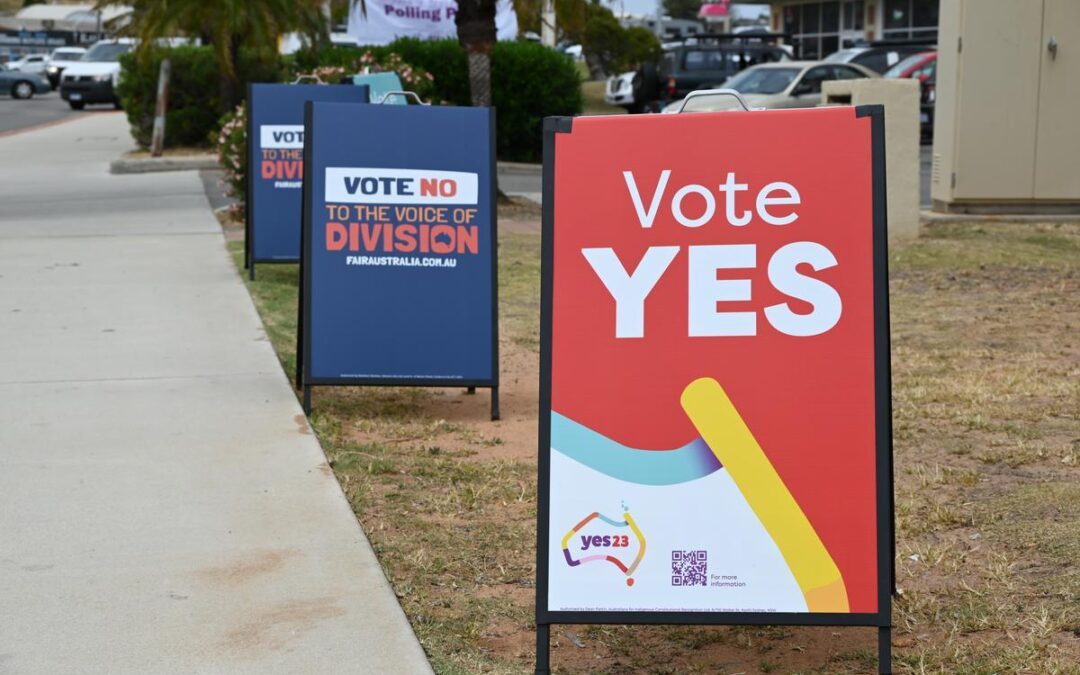A day out from the polls in Australia’s first referendum in 24 years, millions of voters still remain undecided on the proposed creation of an Indigenous Voice to Parliament.
The latest Newspoll shows that eight per cent of Australians are unsure on the proposed changes to the constitution, which would create a dedicated body to discuss and advise government on issues related to Indigenous Australians. About 34 per cent of respondents have said they intend to vote ‘Yes’ and 58 per cent have indicated they will vote ‘No’.
UOW Law School Senior Lecturer Dr Kylie Lingard said that despite “misinformation” being rampant throughout the lead-up to Saturday’s vote, the concept is quite simple.
“What we do first legally is we change the constitution to make sure that any body that is advising the government is a permanent body,” she said.
“The constitution will enshrine a Voice that is permanent, and what legislation will do is shape what it looks like.
“There’s Aboriginal bodies who have advised parliament for years, but in different shapes and forms; all the referendum is going to do is make sure that there will always be an Aboriginal body advising the government.”
Speaking on the significance of the proposed constitutional alteration, Dr Lingard said that the social and cultural benefits of the proposal far outweigh the change itself, which she said had zero legal risk.
“The Voice is so minor,” she said.
“It doesn’t matter which way you look at this, no power is being conceded.
“It creates a permanent structure that no political party can remove, and that’s a major change, but in relation to anything else, it’s all about showing [fellow] Australians we love you and we care for you, and we care about how you feel.”
Meanwhile, Federal Opposition Leader Peter Dutton has again affirmed his opposition to the Voice, controversially citing prominent late Yolngu elder Galarrwuy Yunupingu’s leadership of his community in North East Arnhem Land, as a community-based approach that could be replicated without need for the proposed body.
“[In] East Arnhem Land for example, they’ve got a 90 per cent attendance rate at school, they’ve got a logging company, they’ve got a building company, they’ve got housing, they’ve got a functioning society and in that instance it’s because of the leadership demonstrated by Yunupingu and others around him over the course of a long period, and that’s what we want to see replicated elsewhere,” Dutton said.
“We don’t want to see money diverted away from people who are most in need, particularly children in Indigenous communities, and I think there are many other reasons why this is not going to be the panacea for Indigenous Australians.”
Despite the large number of voters still undecided, a record four million Australians had already cast their ballot at pre-polling centres by Thursday according to the AEC.
Support for the Voice within Indigenous and Torres Strait Islander communities sits at 80 per cent according to the official referendum pamphlet distributed by the Australian Electoral Commission.
Video: With a day left until the referendum, we spoke to Director Jaymee Beveridge and Adam Ridgeway from the University of Wollongong’s Woolyungah Indigenous Centre about what they believe the Indigenous Voice to Parliament will provide for First Nations people across Australia. In this video, Jaymee and Adam give their thoughts on what the referendum is all about, and what they believe it could achieve for Indigenous Australians should the ‘Yes’ vote carry. The official position of Woolyungah, and UOW as a whole is in support of a ‘Yes’ vote on Saturday.

